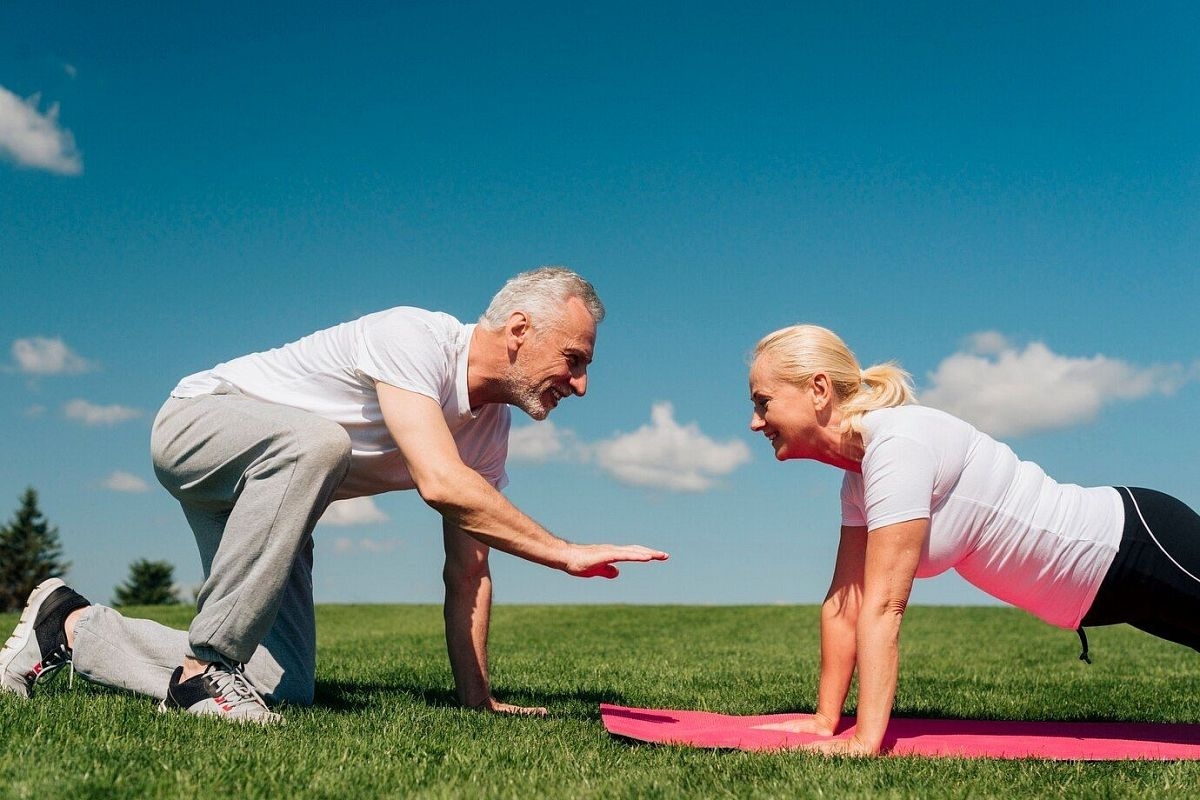Harvard expert Daniel Lieberman debunks the myth that you should exercise less as you get older. In fact, the opposite is true, and he uses anthropology to prove it. Most people accept the ailments of age with incredible normality, as if they were “normal”. It’s harder to climb stairs, you get tired sooner, your back or knees hurt more, you put on weight… “It’s your age,” people often say, when in fact they should say “it’s the effects of a sedentary lifestyle”. As Daniel Lieberman, Harvard professor and exercise expert, explains, “we evolved to be physically active throughout our lives”. Giving up exercise as we get older is not only absurd, it is also dangerous for our health.
Retirement did not exist in the Stone Age
In his book, Exercised, Daniel E. Lieberman uses anthropology to debunk the most common myths about sport. One of the most important ones he addresses, he reveals to the Harvard Gazette, is “the idea that when you reach 65, it’s normal to take it easy”.

This, he assures us, “has never been true for our ancestors. Retirement did not exist in the Stone Age”. In fact, quite the opposite was true. “Hunter-gatherer grandparents worked harder than their parents, searching for extra food to give to their children and grandchildren”.
In other words, “we evolved to be physically active throughout our lives”. This explains why staying active throughout life helps us live longer and stay healthier, as all studies on the subject indicate. Among these, Lieberman cites the Harvard Study of Former Students, conducted by Ralph Paffenbarger. The study revealed that “elderly Harvard alumni who exercised had mortality rates approximately 50% lower than their sedentary peers”.
For Lieberman, the secret to this decline in mortality is that “physical activity activates a wide range of repair and maintenance mechanisms that counteract the effects of ageing”. A sedentary lifestyle deprives us of these “anti-ageing mechanisms”. For this reason, the expert assures us, “the health benefits of physical activity become more important, not less, as we age”.
Why don’t we exercise?

Reading Lieberman’s words raises an important question. If it is true that it is natural for human beings to keep moving throughout their lives, why do we find it so difficult to exercise? The answer lies, once again, in anthropology.
‘We are not lazy, we are just normal,’ explains Lieberman. In prehistoric times, human beings were naturally active because they had to hunt, gather or, as time progressed, cultivate crops in order to survive. Movement was therefore an essential part of our daily lives.
This is why “human beings evolved to move, to be physically active”. Yet, according to Lieberman, this is also why when we ask someone to exercise, “we are asking them to choose to do something that is inherently abnormal”. Because human beings moved to survive. “It would make no sense to expend extra energy on a pointless eight-kilometre run in the morning,” the expert explains. Losing calories out of habit is a modern human thing; it’s not in our DNA.
The problem is that we no longer need to hunt or gather, and few people are involved in agriculture, let alone the old-fashioned way. How, then, can we trick our nature into keeping us active?
The keys to anthropology
‘Since medicalising and commercialising exercise obviously doesn’t work, I think we can improve by thinking like evolutionary anthropologists,’ Lieberman explains to the Harvard Gazette. Don’t worry, you don’t need a degree in anthropology to do this. Just follow three simple tips.
- Don’t be angry with yourself. “Don’t feel guilty if you don’t feel like exercising,” recommends the expert, “learn to recognise these instincts so you can overcome them”. When you get up to exercise, you will feel resistance from your mind. Excuses will arise for not doing it. It’s natural, it’s normal. The important thing is to find tricks to avoid “those little voices” which, Lieberman assures us, are completely normal.
- Understand your nature. According to Lieberman, humans evolved to be physically active for two reasons: “it was necessary or socially rewarding”. By understanding this, you can trick your own nature into keeping you active. Exercising with other people, for example, can be crucial for adherence. It also creates a commitment to the group, and that’s how “obligation”, adds Lieberman, “makes it fun, social and necessary”.
- Neither time nor quantity. Finally, Lieberman recommends “not worrying about the time or amount of exercise you need”. Although there is a widespread myth that we evolved to “be perpetually active, run marathons and be so muscular that we can easily lift giant rocks”, this is not true. “Just 150 minutes of exercise per week (about 20 minutes per day) reduces mortality rates by about 50%,” concludes the expert.

